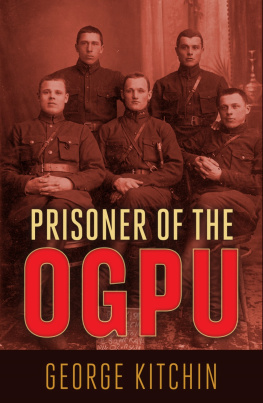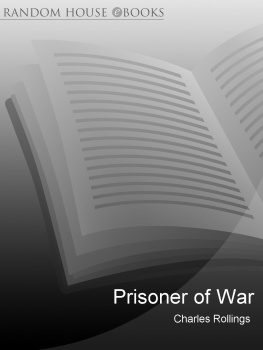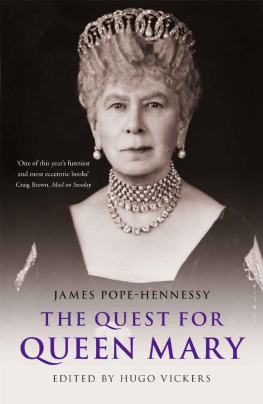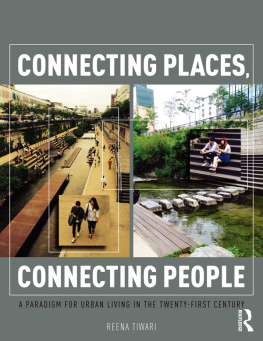PRISONER VOICES FROM DEATH ROW
This book is dedicated to all prisoners currently on death row and who were on death row in India
This book is also a tribute to two of my beloved research participants whom I interviewed in Nagpur Central Prison Yakub Abdul Razak Memon, who was executed and Ajith Singh Gujral who died of natural causes.
Prisoner Voices from Death Row
Indian Experiences
REENA MARY GEORGE
First published 2015 by Ashgate Publishing
Published 2016 by Routledge
2 Park Square, Milton Park, Abingdon, Oxon OX14 4RN
711 Third Avenue, New York, NY 10017, USA
Routledge is an imprint of the Taylor & Francis Group, an informa business
Copyright Reena Mary George 2015
Reena Mary George has asserted her right under the Copyright, Designs and Patents Act, 1988, to be identified as the author of this work.
All rights reserved. No part of this book may be reprinted or reproduced or utilised in any form or by any electronic, mechanical, or other means, now known or hereafter invented, including photocopying and recording, or in any information storage or retrieval system, without permission in writing from the publishers.
Notice:
Product or corporate names may be trademarks or registered trademarks, and are used only for identification and explanation without intent to infringe.
British Library Cataloguing in Publication Data
A catalogue record for this book is available from the British Library.
The Library of Congress has cataloged the printed edition as follows:
George, Reena Mary.
Prisoner voices from death row : Indian experiences / by Reena Mary George.
pages cm
Includes bibliographical references and index.
ISBN 978-1-4724-6172-8 (hardback) ISBN 978-1-3156-0219-6 (ebook) ISBN 978-1-3170-7575-2 (epub) 1. Death row inmatesIndia. 2. Capital punishmentIndia. 3. Criminal justice, Administration ofIndia. I. Title.
HV8699.I4G46 2015
364.66092254dc23
2015016067
ISBN 9781472461728 (hbk)
ISBN 9781315602196 (ebk-PDF)
ISBN 9781317075752 (ebk-ePUB)
Contents
List of Tables
Foreword
Manfred Nowak
In my capacity as UN Special Rapporteur on Torture between 2004 and 2010 I visited many prisons in all regions of the world and spoke in private to innumerable detainees. My main aim was to investigate practices of torture. But when I asked prisoners whether they had been subjected to torture, I often received an answer on the following lines: Of course, I have been tortured by the police after having been arrested. It was terrible, but it stopped as soon as I had confessed to the crime they accused me of. The suffering I have since then been enduring for years in these overcrowded and dirty cells, without light, fresh air, sufficient food or health care, where we are held in conditions worse than animals, is, however, a hundred times worse than the physical pain during two nights of police torture. In fact, the conditions of detention in the 21st century are so terrible that I spoke in my final report about a global prison crisis and demanded that the United Nations draft and adopt an international treaty on the rights of detainees. Prison walls serve a double purpose: They lock prisoners in and society out. In fact, most people are happy that they do not know what life behind prison walls actually looks like. We lack empathy for those behind prison walls. People who are locked away by the State must have committed terrible crimes and, therefore, do not deserve our empathy. But reality tells a different story. To become a prisoner usually is the privilege of the poor. Prisons, and the administration of justice in more general terms, figure among the most corrupt sectors of society in many countries in all world regions. If a crime is committed, considerable pressure is put on the police by judges, prosecutors, politicians, the media and society at large to solve this crime by finding the perpetrators and bringing them to justice. In most countries, the police are not well-educated, well-paid and lack more sophisticated means of evidence taking, such as DNA analysis. Police officers simply arrest people who look suspicious, such as homeless and jobless people, persons with a criminal background, members of minorities and other scapegoats. If they do not confess to the crime, they are subjected to torture in order to extract such a confession. Then these torture survivors disappear behind prison walls, often for years in pre-trial detention, before they are finally convicted by a court on the basis of their confession signed during police interrogation. If you have enough money, you are usually not arrested in the first place. Should you, however, be arrested, you may find a police officer, prosecutor, judge, prison guard or politician whom you can bribe to go free. Sometimes, such bribes are called bail.
Conditions on death row are the worst. In Mongolia, I discovered that persons condemned to capital punishment had to spend the last months of their lives, handcuffed and shackled, in dark solitary confinement cells without any contacts to the outer world. They were only allowed to see one family member before they were executed. I was shocked, demanded abolition and am grateful that the Government in the meantime has abolished this cruel punishment. In China, I also interviewed various death row prisoners, who were handcuffed and shackled, but at least not kept in solitary confinement. While death row prisoners were held in overcrowded and dirty cells in Nigeria, their condition seemed to be less inhuman than in countries like Jamaica, where they are kept in solitary confinement cells in maximum security prison wings. In Jordan, I talked to an Iraqi woman in solitary confinement, who was executed soon after my visit. Whenever I recently hear that another drug offender is going to be executed in Indonesia, I look into my files to see whether I had interviewed him almost 10 years ago on a remote prison island south of Java. Death row prisoners will always remain in my memory. I still see the faces of these drug offenders from various countries when we asked them whether they had lodged a complaint against their inhuman conditions of detention: To whom shall we complain? To the animals? Even in Europe, which is proud to be the first death penalty free zone in the world, I have still visited death row prisoners in the Russian-controlled territories of Abkhazia (Georgia) and Transnistria (Moldova). When I asked the guards in an old, humid and dirty prison in Abkhazia to open the door of a death row cell in the basement, two strong men had to work on this rusty door for more than ten minutes. This door had certainly not been opened for more than a year, and the man I found behind this door seemed to be already in a different world filled with religious symbols. In Transnistria, we needed to find three different guards with different keys to open the cell of a death row prisoner whom I had to interview with handcuffs locked behind his back. But he was so handy and so much used to a life with handcuffs that he could offer me a cigarette and even light his cigarette himself. To speak with death row prisoners is a strong emotional experience. Prison guards and politicians make you believe that these people are the worst of the worst, the most dangerous individuals on earth. But when I managed, usually against the strong resistance of prison guards who cared so much about my personal safety, to speak with them in private, they were not different from other prisoners: human beings whose lives had been destroyed by a long chain of negative, and usually highly painful events.










